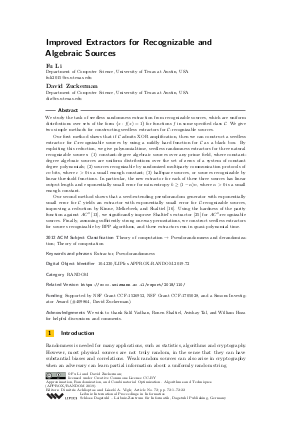LIPIcs.APPROX-RANDOM.2019.72.pdf
- Filesize: 0.55 MB
- 22 pages

 Creative Commons Attribution 3.0 Unported license
Creative Commons Attribution 3.0 Unported license

































Feedback for Dagstuhl Publishing